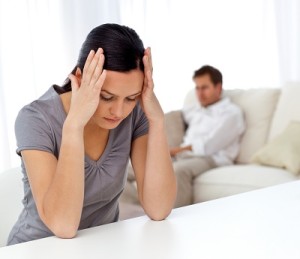- Calls to this hotline are currently being directed to Within Health or Eating Disorder Solutions
- Representatives are standing by 24/7 to help answer your questions
- All calls are confidential and HIPAA compliant
- There is no obligation or cost to call
- Eating Disorder Hope does not receive any commissions or fees dependent upon which provider you select
- Additional treatment providers are located on our directory or samhsa.gov
Marriage to a Bulimic Spouse: How to Stay Healthy
Contributor: Crystal Karges, MS, RDN, IBCLC, Special Projects Coordinator at Eating Disorder Hope/Addiction Hope

Having a spouse who is suffering with an eating disorder can bring many complex factors into a marriage and relationship. Eating disorders are psychiatric illnesses that involve both body and mind, and the consequences that result from these diseases can be overwhelming and complicated to deal with.
If your spouse is struggling with bulimia, you may feel like a helpless outside, unsure of what to do or say to make the situation better. You may feel uncertain about what your spouse is struggling with or how something as seemingly simple as eating can become complex.
What You May See Your Spouse Do
Bulimia is defined by recurrent episodes of binging and purging. You may have observed this in your spouse through various scenarios. Perhaps your spouse tends to disappear after mealtime or seems to eat uncontrollably. Maybe you have noticed weight or mood fluctuations or odd behaviors displayed around food.
You may find empty food wrappers around the house or car, stockpiles of food or the absence of food that was once stored in the refrigerator or pantry. These various signs and symptoms can be red flags that indicate or reveal a greater issue at hand.
Considering an Approach

It may be helpful to meet with a professional who specializes in eating disorders to process your thoughts, emotions, and concerns about your spouse. Having professional guidance can be a tremendous support to you and your spouse as you attempt to offer the same encouragement to your loved one through their recovery from bulimia.
Questions for Yourself and Your Spouse
Watching your spouse struggle with bulimia can trigger an array of questions and emotions. You may question your relationship or wonder if you did something wrong that contributed to this illness. Self-guilt and self-blame will not facilitate healing or encourage treatment, and it is important to understand that you did not cause this illness in your spouse.
In the same manner that you could not cause your spouse to develop another disease, such as diabetes or cancer, you cannot be blamed for the development of bulimia. Your spouse was likely genetically predisposed to having bulimia, and the influence of certain psychosocial factors triggered the progression of this mental illness.
Understanding these facts can help alleviate any feelings of guilt or shame that you may have as a result of your spouse struggling with bulimia.
Seeking Out Professional Treatment

The struggle with bulimia can be difficult to work through in any relationship or marriage, but there is hope for recovery, healing, and restoration. You may feel at loss for words or uncertain about your role in recovery and treatment. Even in the darkest of times, it is important to remember the memories you have cherished with your spouse and the person you love. Your unconditional support and love can speak volumes and give hope for the journey towards recovery from bulimia.
Community Discussion – Share your thoughts here!
Are you the spouse of a man or woman who has struggled with bulimia? What has helped you in your marriage and through the road of recovery? What advice would you share with other couples who may be struggling in their marriage?
Last Updated & Reviewed By: Jacquelyn Ekern, MS, LPC on June 19th, 2015
Published on EatingDisorderHope.com
